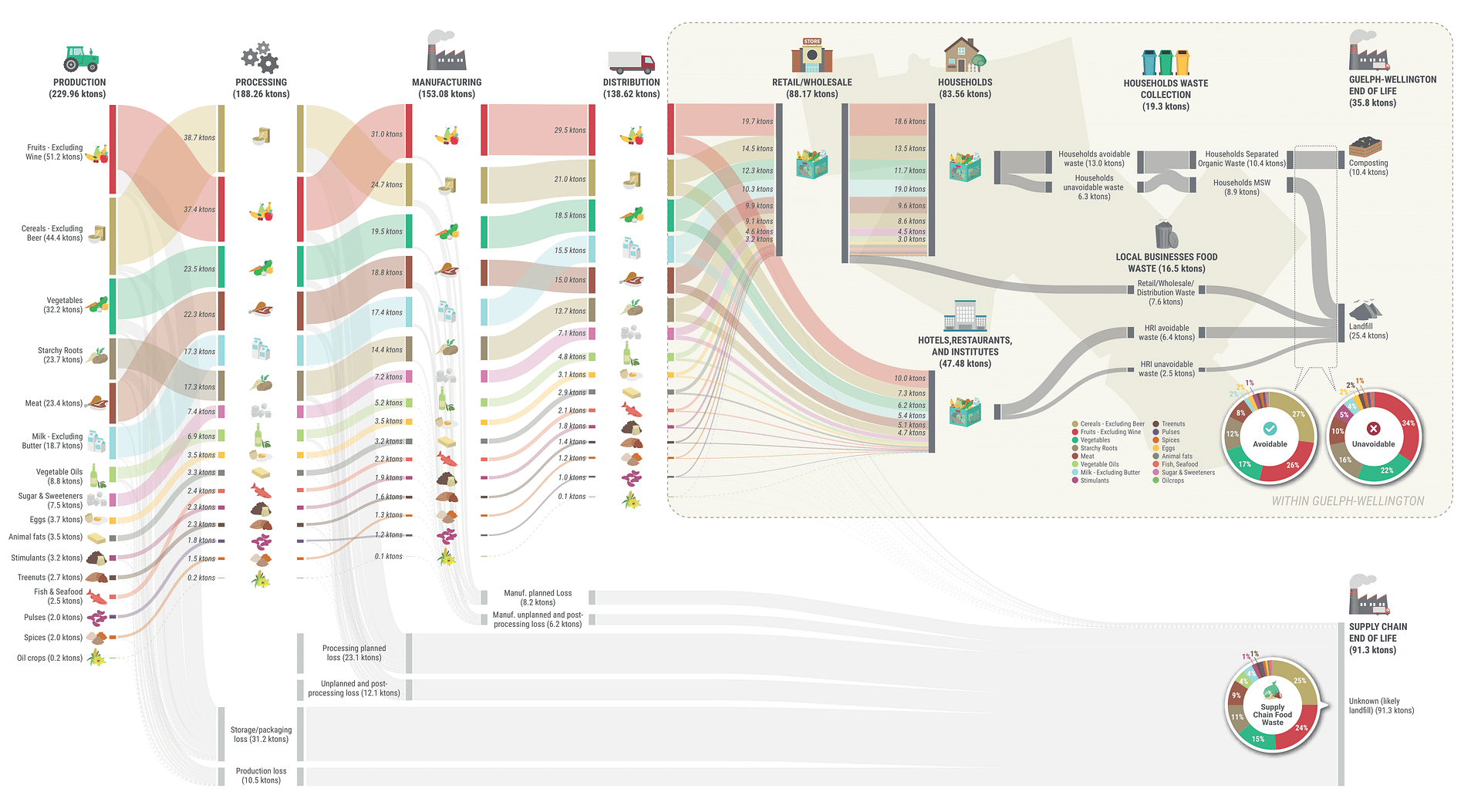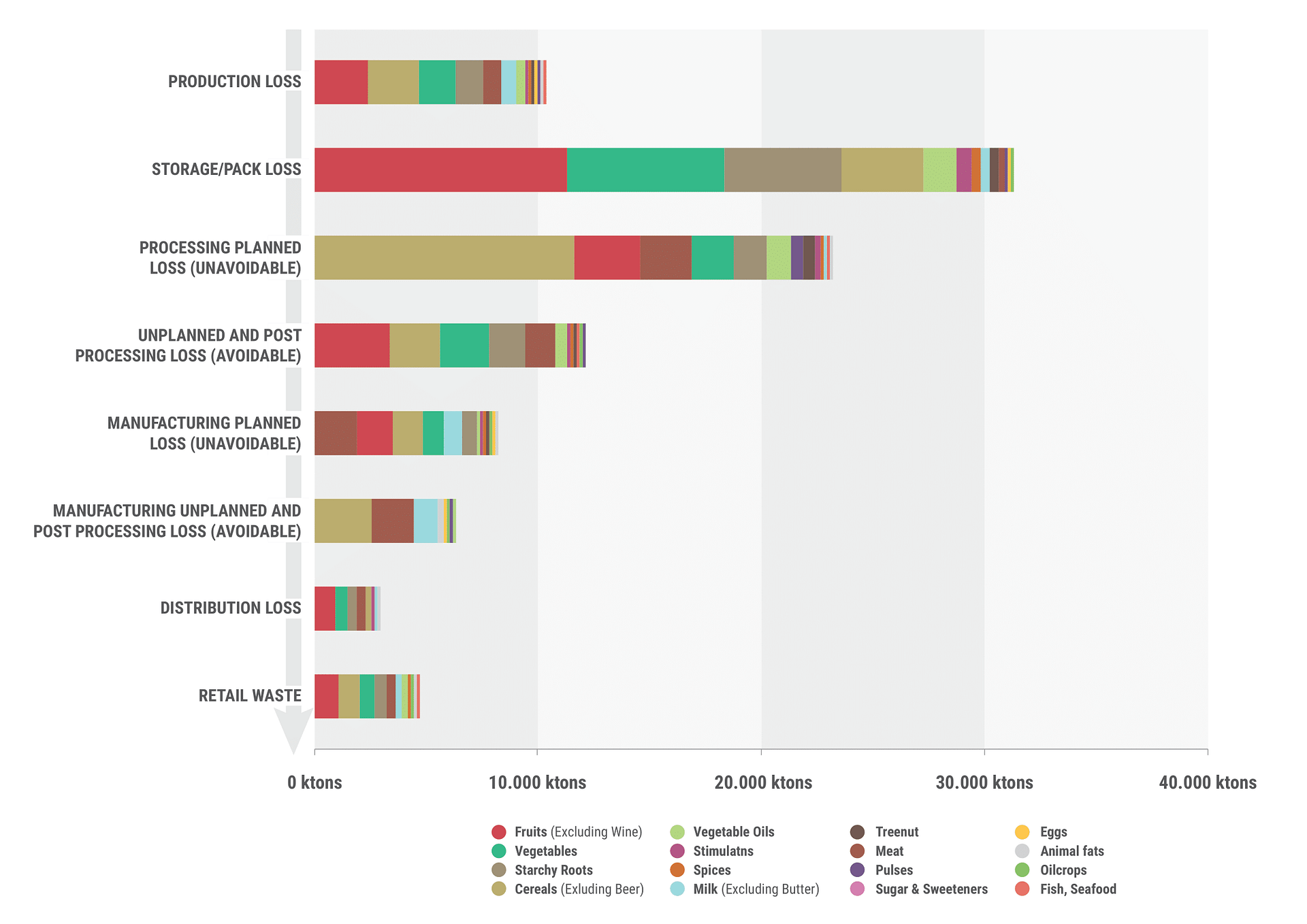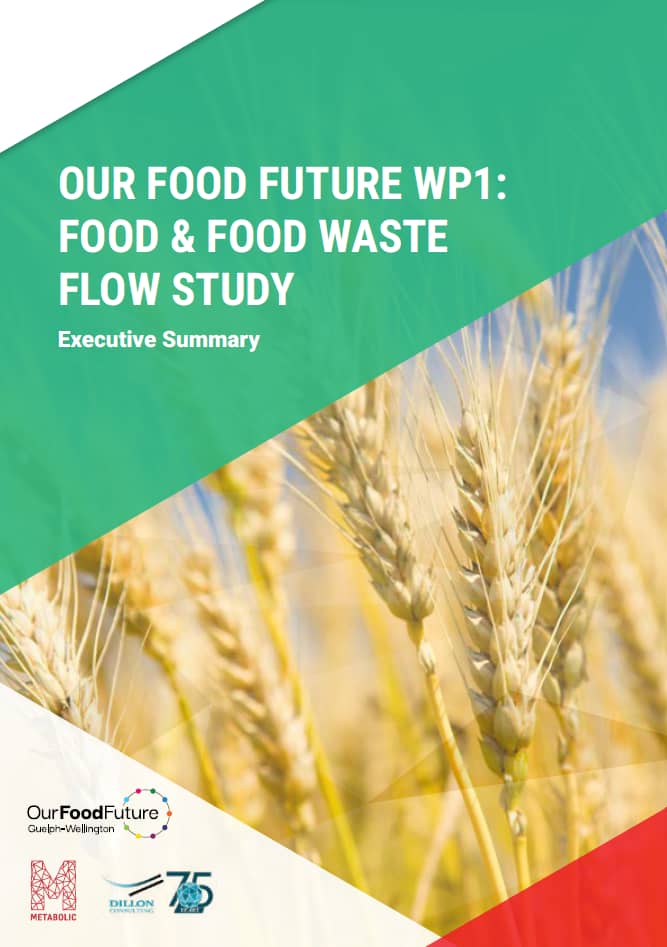Understanding food flows across Guelph and Wellington County
By examining food waste, this Canadian region was able to find opportunities to close loops and ultimately develop the country’s first circular regional food system.
This project was among the initial steps toward Canada’s first circular regional food system. In collaboration with Dillon Consulting and the University of Guelph, Metabolic examined what foods get wasted where in the region of Guelph and Wellington, thereby unlocking opportunities to close loops and develop sustainable business cases. Together we were able to shed light on the movement of food and food waste in the region.
- Partners: Dillon Consulting, University of Guelph
- Clients: City of Guelph, County of Wellington
- Date: 2020-2022
Unsustainable food systems are the norm around the world
Like most food systems worldwide, the Guelph-Wellington food system has an unsustainable “take-make-dispose” structure, characterized by food insecurity, decreasing affordability, and high environmental impact. Guelph-Wellington plans to address these challenges through Our Food Future, a collaborative program to establish Canada’s first circular food economy by 2025, which was awarded a Smart Cities Challenge prize. Essential to the success of this project was gaining a baseline understanding of the regional food system by assessing organic (waste) flows in the area.
Analyzing the existing food system opens up opportunities
Metabolic worked with Dillon Consulting and the University of Guelph to collect, verify, analyze, and visualize data across Guelph-Wellington’s food supply chains.
The region now pilots projects and businesses in impact hotspots
We created a Material Flow Analysis (MFA) to capture food and waste flows throughout the Guelph-Wellington food system from both consumption and production perspectives. This baseline assessment empowered Guelph-Wellington to identify areas where it can divert the most waste and avoid the most environmental impacts. The region continues to pilot high-leverage projects and business cases in these impact hotspots.














